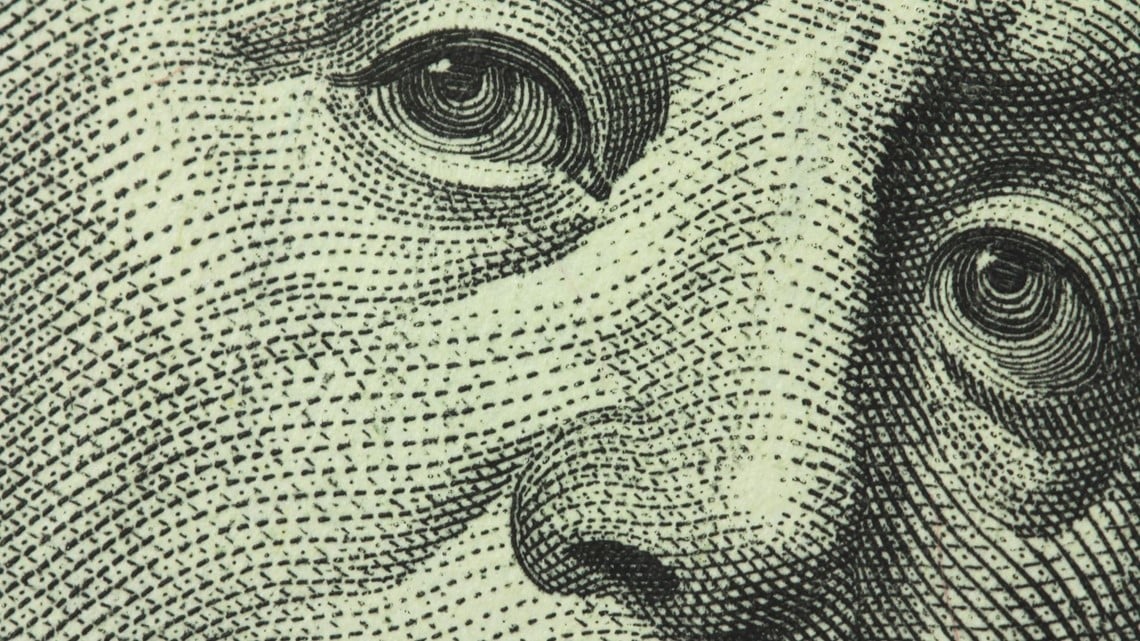The consequences of a US default would have repercussions around the world . Chinese factories that sell electronic components to the US could go bankrupt. Swiss investors who own US Treasury bonds would lose money. Sri Lankan companies would not be able to use US dollars as a substitute for their own currency.

Photo: WZZM
“There is no place in the world that will not be affected if the US government defaults and the crisis is not resolved quickly,” said Mark Zandi, an economist at Moody's Analytics.
Mr. Zandi and two colleagues at Moody's concluded that even if the debt limit were met within a week of a default, the U.S. economy would be severely weakened and could affect 1.5 million jobs.
And if the default continues much longer, the consequences will be even more dire. According to their analysis, US economic growth will slow, 7.8 million US jobs will disappear, interest rates will skyrocket, unemployment will rise from the current 3.4% to 8%, and the stock market will "plummet".
Now, the White House and House Republicans are looking for a breakthrough in the limited time remaining. Republicans have threatened to default on the U.S. debt by refusing to raise the statutory limit unless President Joe Biden and Democrats accept deep spending cuts and other concessions.
Bond market
Much of financial activity hinges on the belief that the United States will always pay its financial obligations. US debt has long been considered an extremely safe asset and a cornerstone of global trade, built on decades of confidence in the US economy. A default could disrupt the $24 trillion bond market, freezing financial markets and triggering an international crisis.
“A default would be a catastrophic event, with unpredictable but potentially severe impacts on global financial markets and the United States,” said Eswar Prasad, a professor of trade policy at Cornell University.
The threat has emerged at a time when the global economy is facing a myriad of threats, from rising inflation and interest rates to the ongoing fallout from the Ukraine conflict. On top of that, many countries have become skeptical of America’s outsized role in global finance.
Historically, US political leaders have sought to raise the debt ceiling before it is too late. Congress has raised, amended or extended the borrowing limit 78 times since 1960, most recently in 2021.
But the problem has gotten worse. The partisan divide in Congress has widened, while debt has continued to rise sharply after years of spending increases and deep tax cuts. Treasury Secretary Janet Yellen has warned that the government could default as soon as June 1 if lawmakers do not raise the debt ceiling.
Influence
“If the credibility of bonds were to decline for any reason, it would send ripples through the system… and have huge consequences for global growth,” said Maurice Obstfeld, a senior fellow at the Peterson Institute for International Economics.
Treasury bonds are widely used as collateral for loans, as a buffer against bank losses, as a haven in times of uncertainty, and as a place for central banks to store foreign exchange reserves.
US government debt, issued in the form of Treasury bills and bonds, has zero risk under international banking regulations. Foreign governments and private investors currently hold $7.6 trillion in US government bonds, or 31% of all Treasury bonds on the financial market.
But high demand for dollars also tends to make them more valuable relative to other currencies, and that comes at a cost: A strong dollar makes American goods more expensive relative to foreign competitors, putting American exporters at a competitive disadvantage. That’s one reason the U.S. has run a trade deficit every year since 1975.
Central banks' USD reserves
Of all the foreign exchange reserves held by central banks around the world, the US dollar accounts for 58%. The euro is second with 20%. According to the IMF, the Chinese yuan accounts for just under 3%.
Researchers at the Federal Reserve calculated that from 1999 to 2019, 96% of trade in the Americas was denominated in US dollars. So was 74% of trade in Asia. Outside Europe, the greenback accounted for 79% of trade.
The US currency is so trusted that merchants in some unstable economies like Sri Lanka are demanding payments in USD instead of the country's currency.
Likewise, many stores and restaurants in Lebanon, where inflation is high and the currency is falling, are demanding payment in dollars. In 2000, Ecuador responded to an economic crisis by replacing its currency, the sucre, with the US dollar, a process known as “dollarization,” and it is now irreversibly devaluing it.
Paradise for investors
Even when a crisis originates in the United States, the dollar is always a safe haven for investors. That's what happened in late 2008, when the collapse of the US housing market sent a series of banks into turmoil.
If the US passes the debt limit without resolving the dispute and the Treasury defaults, Zandi suggested the dollar would once again rise “on uncertainty and fear” before falling and remaining low.
“Global investors will have nowhere to go except where they always go in a crisis, and that is America,” he said.
But the government bond market could be paralyzed. Instead, investors could move their money into US money market funds or bonds of leading US corporations.
Government strategy in case of default
During the debt ceiling crisis, Clay Lowery, who served as assistant secretary of the Treasury during the 2008 crisis, imagined that the US would continue to pay interest to bondholders. And it would try to pay its other obligations, such as to contractors and retirees, in the order in which bills came due and when money came in.
For example, for bills due on June 3, the government could pay on June 5. The pressure would ease after June 15, because that's when government revenue would flow in as more taxpayers make estimated tax payments for the second quarter.
The U.S. government could also be sued by those who don’t get paid, Mr. Lowery said. And ratings agencies could downgrade U.S. debt, even if the Treasury continues to pay interest to bondholders.
The dollar, while still dominant globally, has lost ground in recent years as many banks, businesses and investors have switched to the euro and China's yuan.
“The global economy is in a pretty fragile place right now,” Mr. Obstfeld concluded.
Hoang Viet (according to AP)
Source

































































![[Photo] National Assembly Chairman Tran Thanh Man receives Chairman of Morocco-Vietnam Friendship Association](https://vphoto.vietnam.vn/thumb/402x226/vietnam/resource/IMAGE/2025/7/26/b5fb486562044db9a5e95efb6dc6a263)



































Comment (0)